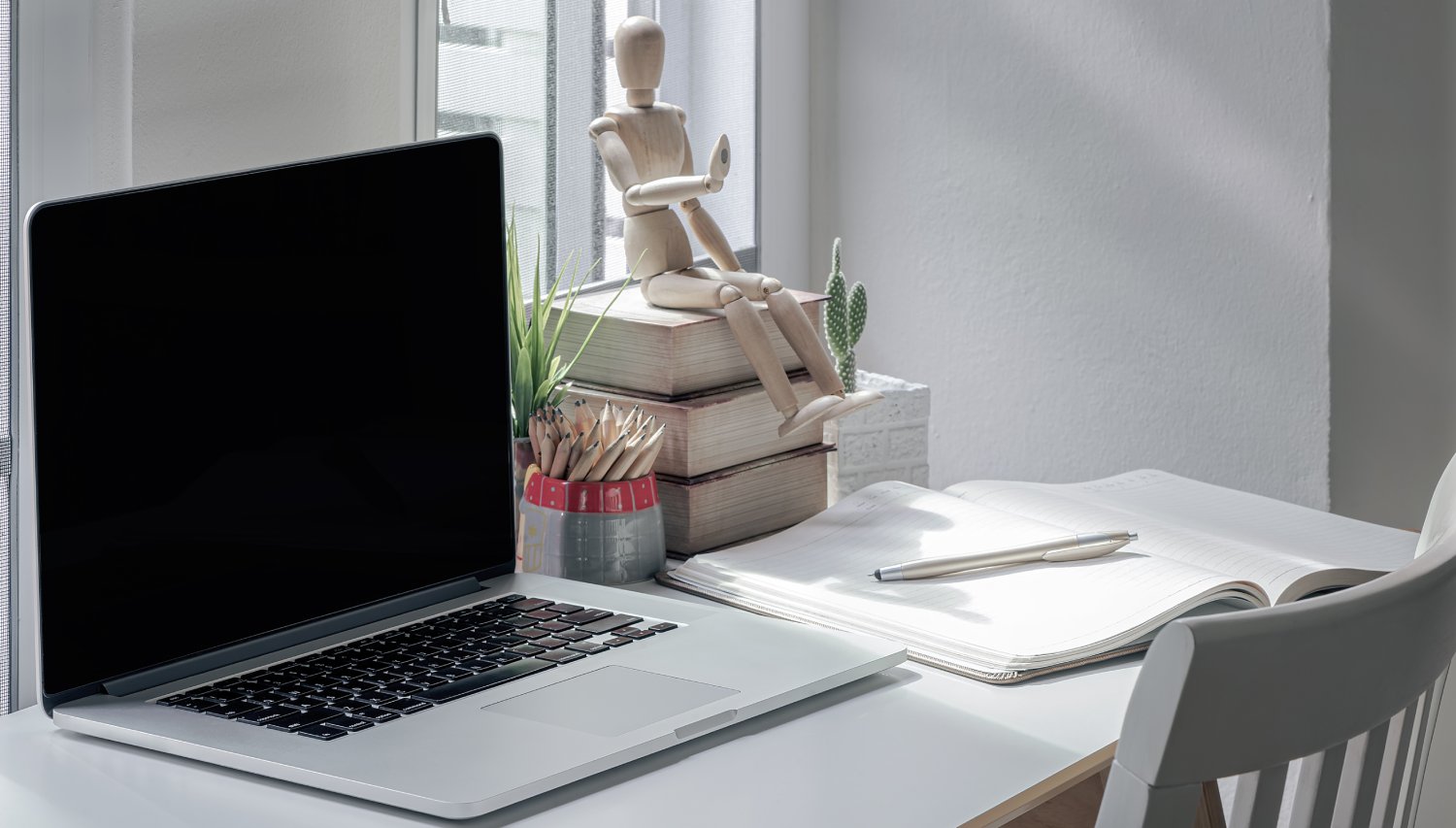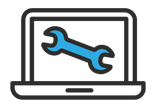Chromebook vs Laptop: Which Should You Buy in 2024
Chromebook vs Laptop: Which Should You Buy in 2024
Each has its own set of advantages and disadvantages, making it crucial for consumers to understand which device suits their needs best. As we step into 2024, let’s delve into the intricacies of Chromebooks and laptops to determine which one emerges as the superior choice.
The truth is that deciding between a Windows laptop and a Chromebook will depend on several things, including what you’ll be using it for. That being said, let’s take a look at some of the pros and cons of each type of computer so you can decide for yourself which one is right for you.

Windows Laptops: Pros and Cons
One of the biggest advantages of a notebook PC or laptop powered by Windows is its versatility. This means that you can run almost any app, use any browser, and configure numerous antivirus options, utilities, etc.
In other words, you can personalise a Windows laptop and make it just what you want it to be. But because of this, you might also be paying thousands of dollars for your laptop, especially if you’ll be using it for video editing or gaming.
If you don’t need more than the basics, however, Windows laptops can be very inexpensive. This is one of their biggest overall advantages over the Chromebooks.
Chromebooks: Pros and Cons
Chromebooks are usually simpler than Windows laptops and are usually cheaper than a comparable Windows PC. This is why so many classrooms use Chromebooks for both in-person and distance learning for their students.
The good news is that Chromebooks do much more than they used to, including Android apps and gaming in the cloud. Therefore, they are considered both productivity and entertainment devices today.
Google keeps adding more and more features to their Chromebooks, which is another one of their many advantages. And at certain times of the year, you can easily find these computers super cheaply.
More Specific Details – Chromebooks Vs Laptops
Now we’ll take a closer look at some of the differences between Windows PCs and Chromebooks. Here are some characteristics of a Windows PC:
- It runs on MS Windows 11 or previous versions such as Windows 10, 8, 7 etc.
- It runs Windows apps such as various MS titles and lots of third-party software.
- It is available as both a laptop and a desktop.
- It can be configured to accommodate basic productivity or more resource-intensive needs.
Chromebooks, on the other hand, have the following traits:
- They can run Linux (not impressive for a lot of people, but it’s still there)
- They are generally much simpler than Windows PCs
- They are usually much cheaper than Windows PCs
- They run Chrome OS but can run some Android apps as well
Chromebooks also look a lot like Windows PCs in many ways, with the main difference being that with the latter, you have numerous hardware choices such as a standard clamshell notebook, 2-in-1 Windows tablets and detachable keyboards, convertibles with 360-degree hinges, or a standard Windows tablet.
Nearly all Chromebooks are clamshells, although some convertibles are now available. If you want to use Android apps on your Chromebook, you might want to opt for the Chrome OS tablet instead of the basic clamshell design.
In the Beginning
Chromebooks came out in 2011 but have improved greatly in their first ten years. At first, their reputation as a cheap PC that was also cheaply made was well deserved, but that is certainly not the case today.
In fact, even a Chromebook’s basic capability is more than enough for many people’s needs.
One thing to keep in mind, however, is that with a Chromebook, it is difficult to run the full MS Office software. You can choose both web-based and Android versions of Office via the Chrome and Google Play stores, but if you want a specific Mac or Windows application (and there isn’t a suitable web or Android app substitute), you probably should avoid the Chromebooks.
This also holds true for people who need video- or photo-editing capabilities. For these people, a Windows PC will work much better.
That being said, today’s Chromebooks are great for streaming game services such as Nvidia GeForce Now and Google Stadia. With a higher-end Chromebook, you can even install and play Linux games if you like.
If you do buy a Chromebook, make sure that you find out about the Auto Update Expiration date (AUE). If you purchased a Chromebook in 2020, you’ll generally have seven or eight years to enjoy the device, but you need to check that date to be sure.
In fact, you can check these dates with Google before you buy your Chromebook, and this is highly recommended.
Then there is the issue of online versus offline usage. Many Chromebooks aren’t good choices if you’re not going to be online most of the time.
That being said, Google now makes it a lot easier for Android users to use their mobile phones as a way to get instant mobile hotspots so that Chromebooks and Android devices can work together.
What About the Prices?
Chromebooks are usually smaller and lighter than a laptop, and they usually have low hardware requirements. Because of this, they are generally much cheaper than a Windows PC.
In fact, you can still get a good Chromebook for around £300. These entry-level Chromebooks typically feature modest hardware specifications, such as Intel Celeron or MediaTek processors, 4GB of RAM, and 32GB to 64GB of eMMC storage. While they may not offer cutting-edge performance, these devices are suitable for light productivity tasks, web browsing, and media consumption.
On average, if you want more features or faster performance, you should plan on spending £350 to £500 or more for a Chromebook. These Chromebooks often feature more powerful processors, such as Intel Core i3 or AMD Ryzen 3, along with 8GB of RAM and 64GB to 128GB of storage. With improved performance and storage capacity, these devices cater to users with slightly more demanding computing needs, such as multitasking and running web-based applications.
If what you need to do can be done in a web browser or with either web-based or Android apps, you might as well go with a Chromebook, especially if your budget is a concern. But the more you need from your computer, the more you’ll have to consider a Windows PC.
Entry-level laptops in 2024 typically start around £350 to £500, offering basic performance and functionality for everyday computing tasks. These laptops may feature Intel Pentium or AMD Athlon processors, 4GB to 8GB of RAM, and 128GB to 256GB of storage. While they may lack the bells and whistles of higher-end models, entry-level laptops are suitable for casual users, students, and budget conscious buyers.
Conclusion – Chromebooks Vs Laptops
While Chromebooks excel in simplicity, portability, and affordability, traditional laptops offer superior performance, software compatibility, and versatility. The choice between the two ultimately hinges on individual preferences, usage patterns, and budget constraints. Whether you prioritise mobility, performance, or affordability, both Chromebooks and laptops present compelling options in today’s ever-evolving tech ecosystem.
As technology continues to advance, buyers need to weigh the pros and cons of each device carefully to make an informed decision that aligns with their needs and preferences.
Keep in mind that for business purposes, a Windows PC is likely to better meet your needs than a Chromebook. Nevertheless, Chromebooks are getting better and better when it comes to their features, so this could change by the time you read this.
Want To Buy Some New Tech?
Leave your details, and we will call you.
Take a look at our services
Get in touch.
We’d love to hear from you.
Give us a call, send an email or drop us a note and we’ll call you back.

